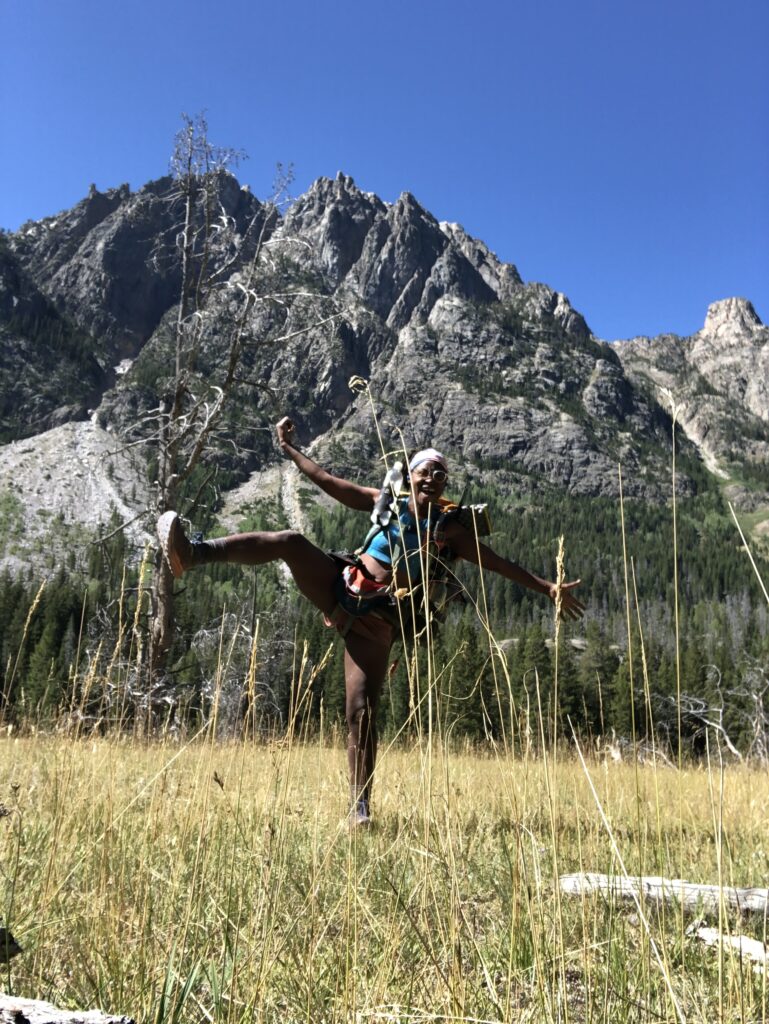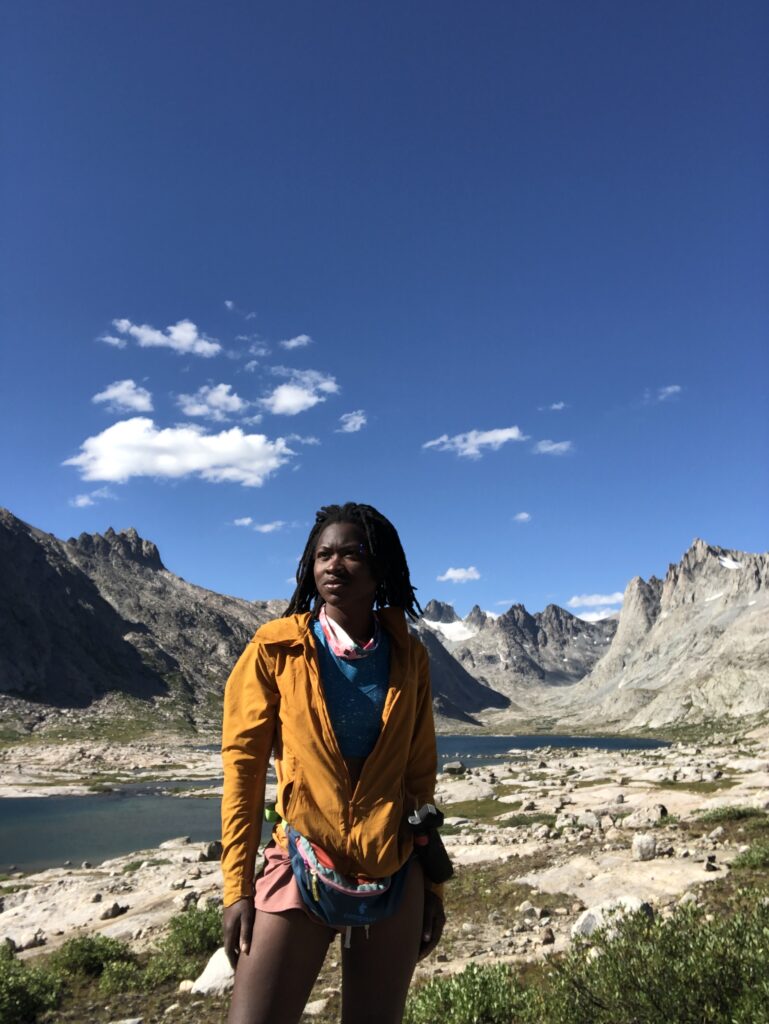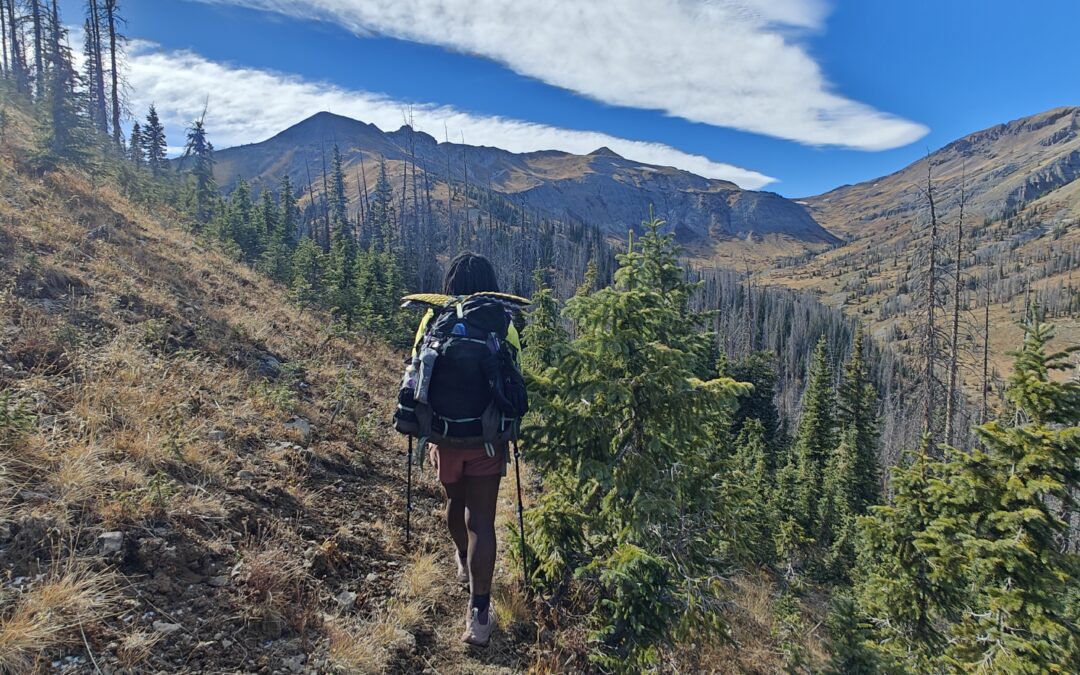Shilletha “Dragonsky” Curtis on the Power of Representation on Trails
By Claire Cutler, CDTC Trail Policy Specialist
Unapologetically Herself
Shilletha “Dragonsky” Curtis began her southbound CDT thru-hike wearing a rainbow tutu and carrying a Nigerian flag on her backpack. As the first Black queer woman pursuing the Triple Crown, she knows that there is power in sharing her identity on the trail.
Describing her decision to wear the tutu, she said, “It was empowering for me to take the initiative to do that, to hike on the [Appalachian Trail] and the [Continental Divide Trail] in the tutu. I was like, ‘I’m going to be unapologetically me. I’m not going to hide this.’ And I knew it might give others the inspiration to walk in their truth.”

After completing the Appalachian Trail in 2021, Dragonsky decided to hike the Continental Divide Trail next because she knew it would be the most challenging of the three Triple Crown trails. She wanted to “face her fears.” Dragonsky began the CDT hiking southbound in 2022 and completed the trail in 2023, after sustaining an injury.
On and off of the trail, Dragonsky has been an outspoken advocate for Black thru-hikers. She has written about the financial barriers that Black thru-hikers face, the experience of choosing her trail name, and the racism that she experienced while hiking the Appalachian Trail.
Finding Community
When finding community on trail, Dragonsky trusts her intuition and knows that she will naturally gravitate towards others with shared identities. On the CDT, she saw “the most queer people [she’s] ever seen on the trail.” She described an experience at a hostel in East Glacier where she found herself sitting at a table with other queer thru-hikers and she knew instinctively, “these are my people.”
Dragonsky emphasized the importance of places where queer and BIPOC thru-hikers can feel safe on the trail. Often relying on comments on FarOut to gauge the safety of a community or establishment, she emphasized the impact of seeing a business that is clearly and openly accepting of queer and BIPOC thru-hikers, such as The Notch Hostel on the Appalachian Trail, which displays Pride and Black Lives Matter flags.

Sharing Her Story
Dragonsky is now sharing these experiences, along with her perspective on mental health and thru-hiking, in her recently-published book Pack Light: A Journey to Find Myself. For Dragonsky, this is more than a thru-hiking book. It’s a narrative of what it’s like to be a Black queer woman with mental illness on trails, and a discussion of what thru-hiking is like “for people who aren’t white men.”
Dragonsky began writing the book in 2016 while she was hospitalized for a mental health crisis. Describing the experience, she says “I don’t know what compelled me. I just started writing… It was really inspired by being a Black woman with mental illness. It’s not talked about in my community.”
Describing her hopes for the book, Dragonsky said, “If it saves someone, if it gives someone another minute, another day, to live fighting this illness, or whatever illness, that is the biggest thing for me. If someone can talk about this, then we start to break the stigma down.”
At the heart of writing her book and thru-hiking, it all comes down to representation for Dragonsky. “How do you expect to see yourself in nature if you don’t see yourself in nature?” she asks.

